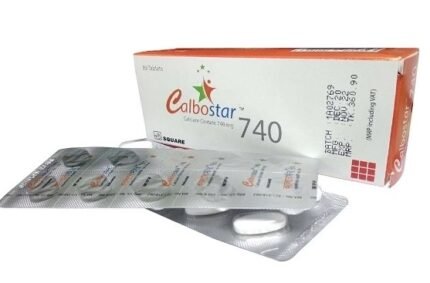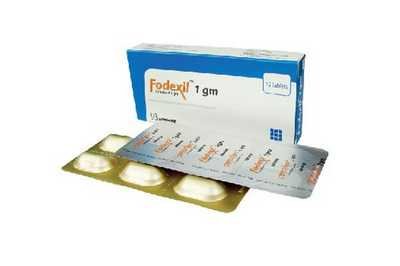Carbizol 10
50.00৳ Strip
Discover Carbizol, a trusted solution for managing hyperthyroidism, thyrotoxicosis, and preparation for thyroidectomy. With its potent anti-thyroid properties, Carbizol effectively reduces thyroid hormone formation and is compatible with radio-active ablative therapy. Our carefully crafted dosage regimen ensures optimal patient care, guiding them towards a euthyroid state while prioritizing safety and efficacy. Count on us for reliable medication, backed by expert guidance and adherence to stringent storage standards.
 Brand
Brand
|
Square Pharmaceuticals PLC |
|---|---|
 Generics
Generics
|
Carbimazole |
Indications
Carbizol serves as a management solution for hyperthyroidism, thyrotoxicosis (including thyroid storm), and aids in preparing patients for thyroidectomy. It can also complement radioactive ablative therapy.
Pharmacology
Carbimazole, an anti-thyroid agent, hampers the production of thyroid hormone by reducing the uptake and concentration of inorganic iodine by the thyroid. Its primary action is diminishing the formation of di-iodotyrosine and thyroxine. Carbimazole is swiftly absorbed through the gastrointestinal tract and distributed extensively throughout the body. It undergoes complete metabolism into methimazole, the active metabolite responsible for its clinical efficacy. Carbimazole readily crosses the placental barrier and is excreted into the breast milk of lactating patients.
Dosage & Administration
Initial dosing ranges from 20-60 mg, divided into 2-3 doses until the patient reaches a euthyroid state. Daily dosage should be divided.
For maintenance, the dose is gradually tapered to sustain a euthyroid state, typically ranging from 5-15 mg/day, usually taken once daily.
For neonates and children under 12 years, the usual initial dose is 250 mcg/kg/day, divided into doses.
The duration of treatment usually spans 18 to 24 months.
Interactions
Carbizol may interact adversely with other medications. Excessive iodine may diminish the response to Carbimazole, necessitating dosage adjustments or prolonged therapy with antithyroid agents. As thyroid and metabolic function normalize, the response to oral anticoagulants may decrease. However, if thioamide-induced hypoprothrombinemia occurs, anticoagulant effects may be potentiated. Adjustment of oral anticoagulant dosage based on prothrombin time is advised. Serum concentrations of digoxin and digitoxin may increase as the thyroid and metabolic status of patients on antithyroid agents decreases. Reduction in dosage of any digitalis glycoside may be necessary as patients achieve euthyroid status.
Contraindications
Carbizol should not be administered to individuals with hypersensitivity to carbimazole or other thiourea antithyroid agents.
Side Effects
Possible side effects encompass rash, pruritus, skin pigmentation, paresthesias, urticaria, headache, arthralgia, and gastrointestinal disturbances (including nausea, vomiting, and gastric discomfort), as well as abnormal hair loss. Rare adverse reactions include drug fever, a lupus-like syndrome, vasculitis, nephritis, and hepatic disorders, primarily jaundice, along with taste disturbances following Carbimazole therapy.
Pregnancy & Lactation
Carbimazole may be administered during pregnancy to thyrotoxic patients, with the smallest effective dose recommended due to potential adverse effects on the fetus. As Carbimazole crosses the placenta and is excreted into breast milk, it may lead to fetal or neonatal hypothyroidism and goiter.
Precautions & Warnings
Carbizol should be administered cautiously, or avoided altogether, in the presence of any tracheal obstruction, as high doses may induce thyroid enlargement, exacerbating obstructive symptoms.
Overdose Effects
Overdose or accidental poisoning may result in hypothyroidism and goiter. If blood dyscrasias occur, immediate withdrawal of the drug is warranted. Subsequent treatment should focus on symptomatic and supportive measures.
Therapeutic Class
Anti-thyroid medications.
Storage Conditions
Store below 25°C.













Reviews
There are no reviews yet.